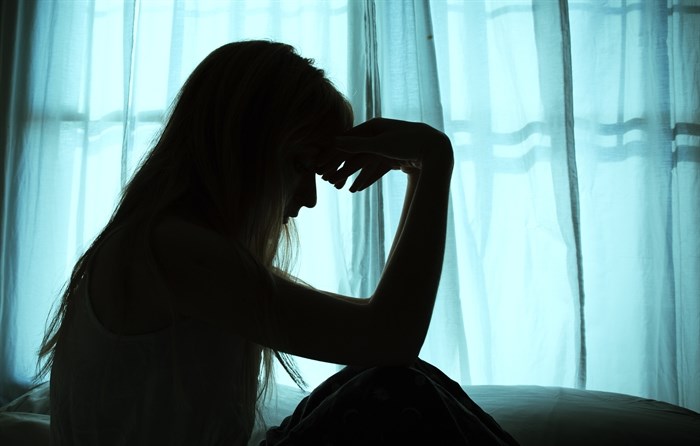
Image Credit: ADOBE STOCK
March 03, 2021 - 7:00 AM
In the first few months of the COVID-19 pandemic, more than 70 per cent of people reported experiencing significant psychological distress, with younger adults faring worse than the older generation, a recently published psychological study has found.
University of British Columbia researchers found that 76 per cent of those surveyed reported at least one pandemic-related source of stress.
UBC psychology professor Anita DeLongis oversaw the study and said she was shocked by the results.
A psychologist and professor at the Centre for Health and Coping Studies at UBC, DeLongis has been studying people's behaviour during past global health threats going back to the SARS outbreak.
"To have over 70 per cent of the population scoring above the cut-off for significant psychological distress, I've never seen anything like that before," DeLongis said. "Even 50 per cent would have been surprising to me."
DeLongis said some of the results are not surprising.
People who had some mental health issue to start with are particularly vulnerable, as well as women and those who have lower incomes. Around 50 per cent of those in the study reported feeling socially isolated.
While mental health issues have been widely reported since the beginning of the pandemic, the academic research cements what many have been seeing and feeling since the pandemic began and also confirms the severity of it.
When the pandemic began, DeLongis began an online survey tracking people's behaviour around the world, although largely in Canada and the U.S. The survey now has 8,000 participants who were initially tracked every week and now every month.
"The idea is to follow these people long after the whole COVID crisis is over because I'm sure there is going to be long term effects as well, and we're really interested in understanding who is able to go back to their previous life and... we anticipate that some people are going to have lingering mental health effects (from) this, whether or not they got COVID," she said.
The paper, Psychological Distress in North America During COVID-19: The role of pandemic-related stressors, is the first her team has published using the data from the survey. DeLongis said they've barely scratched the surface when it comes to the amount of research that will come out of the survey.
The study looked at four stressors: Financial insecurity, resource insecurity, social isolation, and occupational difficulties.
Only seven per cent of the respondents reported that they didn't experience any of these stressors, while 29 per cent reported three, and 17 per cent reported all four.
DeLongis said that she was surprised to find younger adults faring worse than the older generation
"You might expect feeling worried about getting COVID (and) feeling that you're at risk from getting sick from COVID is highly related to how distressed you are psychologically," she said. "But for younger adults, they're showing elevated levels of distress, even when their personal concern about COVID is quite low, so clearly it's not just about being concerned about getting sick."
While it may be thought that as younger people tend to have less job security and less money, they would therefore feel more stress, but when the study controlled for that factor, it still found the younger generation experienced more distress.
The professor reiterated she’s only speculating as to why this is, as her research didn't evaluate this factor, but she says younger people have a greater need biologically to socialize.
"There are some models in the ageing literature that older adults have more resilience, they've learnt over the years how to handle things," she said.
DeLongis said the idea behind the research is to identify which groups are most affected so they can be helped.
As the survey is ongoing, the research will also look at what happens to stress levels and will be able to measure whether they continued to go up or whether people start getting used to living in the pandemic.
With a wealth of data to analyze, future studies will look at alcohol and cannabis use, weight gain, exercise, and how relationships are being impacted, among others.
The UBC professor also has a personal connection in studying the effects of global health threats.
"Both of my great grandmothers died in the Spanish flu and my grandparents were (sent to) orphanages... so I feel like there have been multi-generational effects on my family from when I see what happened in that pandemic," she said.
DeLongis says she's surprised by some of the findings and also points out a worrying factor.
As the study relied largely on the media and word of mouth to recruit people – who need internet access to take part – the sample survey is disproportionally educated and relatively well-to-do. She's sure the rates of distress would be even higher if people living in disenfranchised poorer communities were better represented in the study.
For information about how to become part of the ongoing survey go here.
The entire paper can be found here.
To contact a reporter for this story, email Ben Bulmer or call (250) 309-5230 or email the editor. You can also submit photos, videos or news tips to the newsroom and be entered to win a monthly prize draw.
We welcome your comments and opinions on our stories but play nice. We won't censor or delete comments unless they contain off-topic statements or links, unnecessary vulgarity, false facts, spam or obviously fake profiles. If you have any concerns about what you see in comments, email the editor in the link above.
News from © iNFOnews, 2021